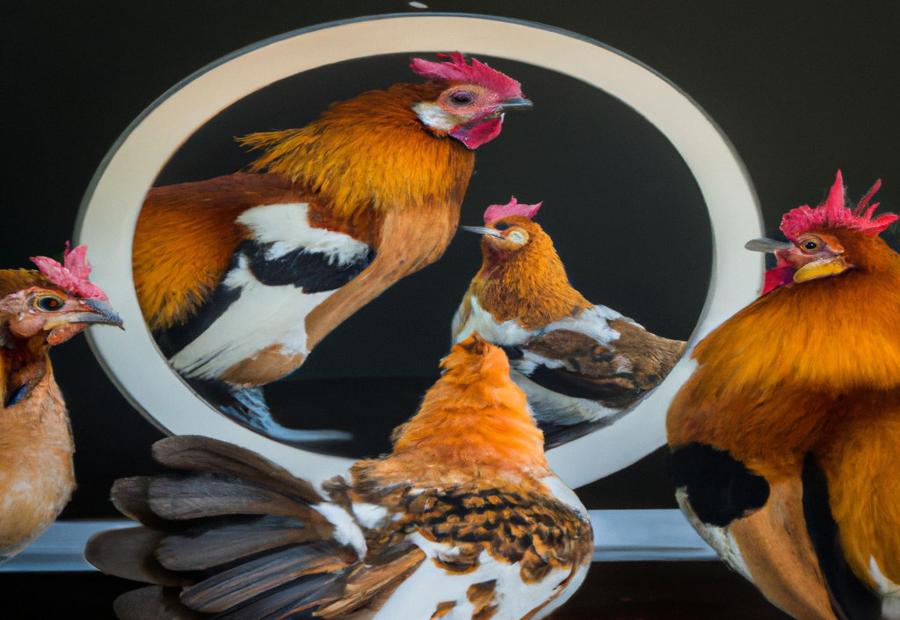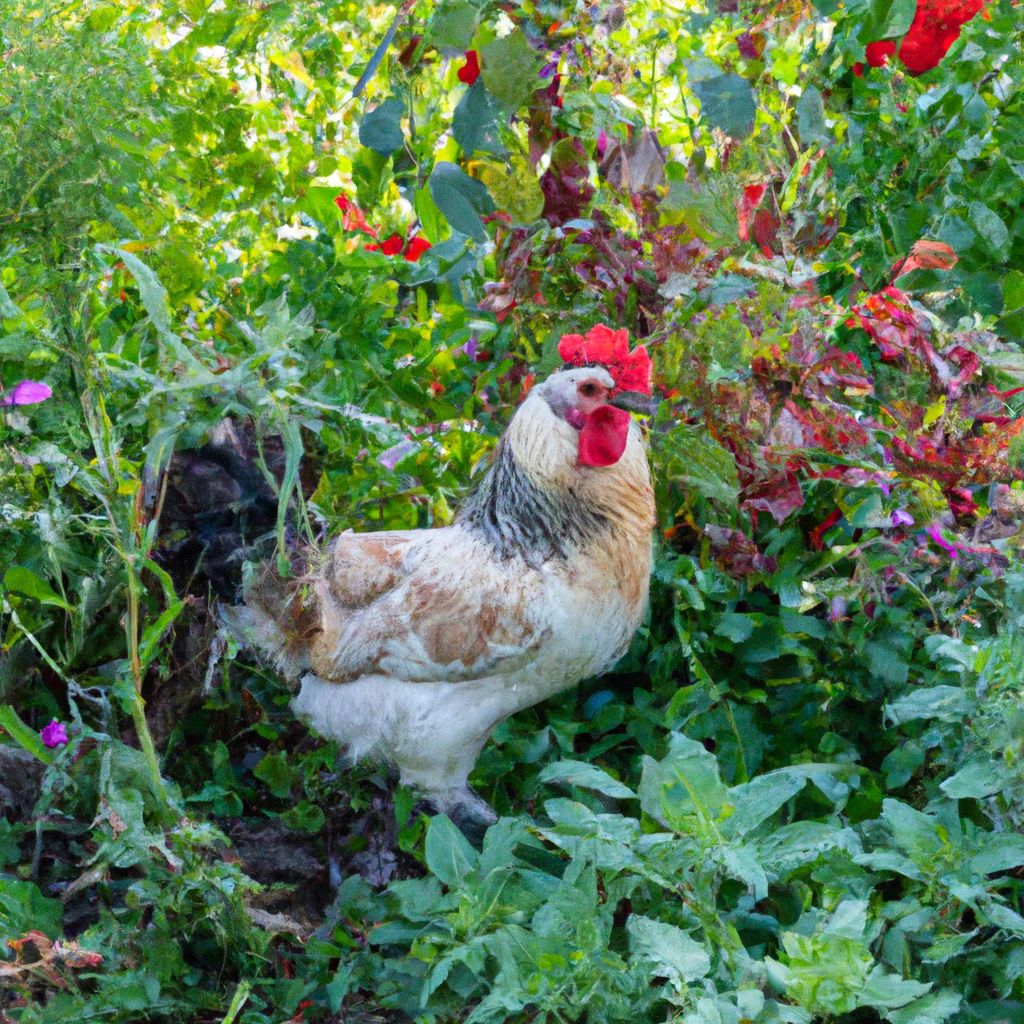Questions About Birds
How Long Do Bantam Chickens Live
Key takeaway:
- The lifespan of bantam chickens is influenced by various factors such as breed and genetics, environmental factors, diet and nutrition, and housing and care.
- Bantam chicken breeds have varying longevities, and it is important to choose the right breed that suits your needs and preferences.
- To increase the lifespan of bantam chickens, provide them with a suitable living environment, a balanced diet, proper care and hygiene, and regular health check-ups.
Introduction: The Lifespan of Bantam Chickens

Photo Credits: Chipperbirds.Com by Eugene Wilson
Bantam chickens, small versions of standard-sized breeds, are popular amongst backyard chicken keepers. They are valued for their ornamental qualities and friendly, sociable nature. Depending on breed, genetics, health, and living conditions, these birds can have lifespans up to 8 to 10 years. For a long and fulfilling life, they need proper care and attention. A balanced diet, safe environment, and regular vet visits are key!
Factors Affecting Bantam Chicken Lifespan
Bantam chickens have life-spans affected by various factors. These include genetics, diet, environment, and health care. A few breeds of bantam chickens may have longer lifespans due to their genetic makeup. Diet is also crucial for overall health and longevity – a balanced and nutritious diet is essential! The environment in which these chickens are raised is another important factor. Keeping it clean and stress-free reduces the risk of disease. Also, regular vet care and vaccinations are needed for maintaining their health.
In a table that summarizes the factors affecting bantam chicken lifespan:
| Factors | Summary |
|---|---|
| Genetics | Determine certain breeds’ potential for a longer life |
| Diet | Emphasize a balanced and nutritious diet |
| Environment | Mention the importance of a clean and stress-free environment in reducing the risk of disease |
| Health care | Highlight the importance of vet care and vaccinations |
It is significant to know that the lifespan of bantam chickens can vary depending on these factors. Smaller breeds tend to live longer. Therefore, proper care is crucial for their wellbeing and lifespan.
As a pro tip, monitoring their health and going to the vet at the first sign of illness is recommended. This can help prevent serious health issues and increase their lifespan.
Therefore, considering and addressing these factors that affect bantam chicken lifespan can greatly improve their wellbeing and increase their chances of living a long and healthy life.
Bantam Chicken Egg Production
Bantam chickens are small and charming. They lay eggs in abundance! Reference data shows that they typically lay 150-200 eggs each year. These eggs are slightly smaller than standard chicken eggs, but they make up for it with their rich flavor. Bantam chickens are excellent layers and provide a steady supply of eggs for small households.
Let’s take a look at this table for a quick overview:
| Egg Quantity | Average Size |
|---|---|
| 150-200 | Smaller compared to standard chicken eggs |
Bantam eggs are treasured for their taste and culinary uses. They also have a natural inclination to sit on and hatch their own eggs. This is known as broodiness. It can impact their egg production, as they may temporarily stop laying eggs while they focus on incubating and raising their chicks. But, once the brooding period is over, they usually resume laying eggs.
So, bantam chicken egg production is a big factor to consider when raising these birds. With their delicious flavor and unique qualities, bantam eggs can be a delightful addition to any table. Understanding their characteristics is essential for anyone interested in raising these amazing birds.
Longevity of Different Bantam Chicken Breeds

Photo Credits: Chipperbirds.Com by Eugene Roberts
Bantam chickens have varying lifespans based on their breeds. Reference data reveals these differences. Creating a table can help elucidate this information. Further details can provide comprehensive understanding.
Table:
| Breed | Lifespan |
|---|---|
| Bantam Chicken Breed | Range of average lifespan (in years) |
Reference data shows that the lifespan of bantam chickens can differ from breed to breed. For example, Serama bantams live for 4 to 7 years. Silkies, famous for their fluffy plumage, live for 7 to 9 years. Sebright bantams have feather patterns and live 6 to 8 years.
The Bantam Wyandottes stand out. They have a rounded shape and distinctive plumage patterns. Plus, they live 7 to 12 years – longer than other breeds.
Care Tips for Increasing Bantam Chicken Lifespan
Want to make sure your bantam chickens live long and healthy lives? Follow these care tips!
- Give them a nutritious diet: Mix grains, pellets, fruits and veggies together for a balanced meal. This ensures they have the nutrients needed for health.
- Keep the coop clean & comfy: Clean out bedding and waste often. Make sure there’s enough ventilation and insulation to help with extreme temps.
- Have a regular healthcare routine: Check chickens for signs of illness or injury. Vaccinate them against common diseases/parasites & get vet advice when needed.
- Stimulate their minds & bodies: Bantam chickens need exercise & mental stimulation. Give them space to roam and objects to interact with to avoid boredom.
By doing this, you can increase the lifespan of your bantam chickens and give them a happy, healthy life!
Conclusion: Enjoying the Company of Bantam Chickens

Photo Credits: Chipperbirds.Com by Kevin Davis
Bantam chickens are a delight! They have unique characteristics and can live for many years. They’re sociable and can adjust to different environments, making them perfect pets.
Their lifespan ranges, depending on genetics, diet, and care. Usually, they can live from 5 to 8 years, but some even last up to 10 or more!
They’re small, but they bring happiness and contentment. They have friendly and curious personalities, often amusing us with their funny behaviors. Plus, they can be affectionate with us. That’s why they’re so popular among those looking for something special.
They come in different breeds, each with its own distinctive colors, patterns, and feathers. The splendid plumage and attributes make them a favorite among poultry fans and collectors.
One family had a bantam flock in their yard. They became beloved members of the family. The kids especially enjoyed watching them and interacting with them. Plus, they laid eggs that were super tasty! This shows how bantam chickens can give joy, companionship, and more.
To sum up, bantam chickens can be amazing friends. They live long lives, are sociable, can adapt, and have stunning feathers. They bring entertainment and love, and can even give us eggs! If you’re searching for a pet that’s unique and interactive, bantam chickens might be perfect.
Some Facts About How Long Do Bantam Chickens Live:
- ✅ The life expectancy of bantam chickens is 4 to 8 years, with some living longer. (Source: Team Research)
- ✅ Factors that affect their lifespan include breed, environment, care, diseases, parasites, and predators. (Source: Team Research)
- ✅ Some breeds, like German bush fowl, are bred to live longer. (Source: Team Research)
- ✅ Free-range chickens have more variety in their feed but are also more vulnerable to predators. (Source: Team Research)
- ✅ Quality feed and fresh water are important for their health and egg production. (Source: Team Research)
FAQs about How Long Do Bantam Chickens Live
How long do bantam chickens live?
Bantam chickens have an average lifespan of 4 to 8 years, but with proper care, some can live up to 10 to 15 years.
What factors affect the lifespan of bantam chickens?
The lifespan of bantam chickens can be influenced by factors such as breed, nutrition, health conditions, general care, and the presence of diseases and parasites.
What is the average life expectancy of bantam hens?
Bantam hens typically lay eggs for 2 to 3 years, with the number of eggs decreasing after that period. However, the eggs produced may become larger as they age.
How much space do bantam chickens require in a back garden?
Bantam chickens can be kept in a smaller space, such as a back garden. They don’t need a large area to roam, but it is important to provide them with a secure coop or run to protect them from predators.
Do bantam chickens require calcium supplementation in their diet?
Yes, bantam chickens, like any laying hens, benefit from calcium supplementation in their diet. This helps in maintaining their overall health and proper egg production.
Where did the term “Bantam” originate from?
The term “Bantam” comes from the city of Bantam in Indonesia. This is where the first Bantam breeds were imported from into Europe, and the name has stuck ever since.

